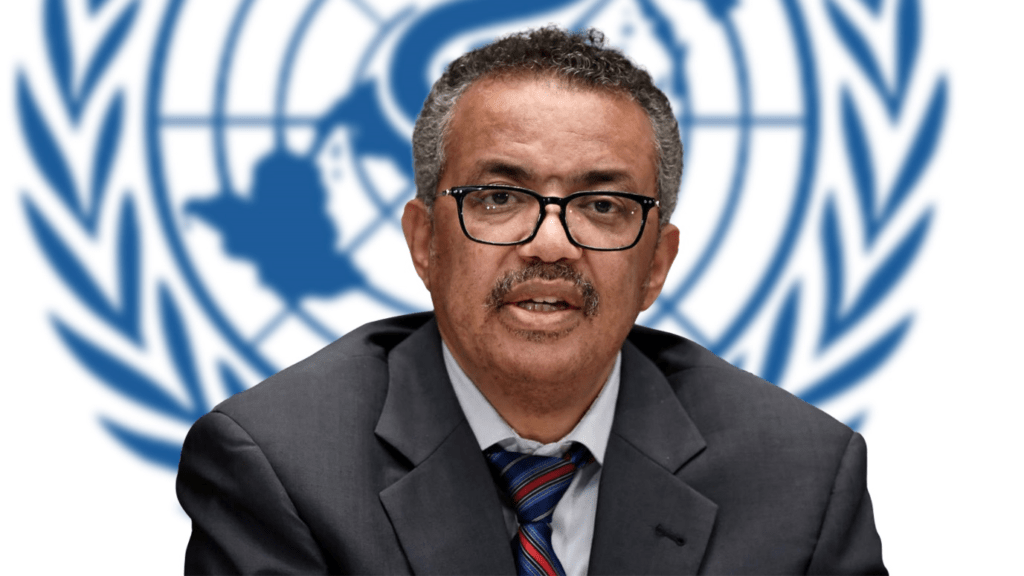
Canada Appeals for International Firefighting Aid
June 09, 2025: Canada has issued an international appeal for firefighting support as wildfires intensify across multiple provinces

September 23, 2021: -World Health Organization officials repeated their protests Tuesday against Covid-19 booster shots for the healthy people, even as the U.S. readies this week to authorize their distribution across a wide swath of America.
The WHO strongly opposes the widespread rollout of booster shots, asking that wealthier nation instead give extra doses to countries with minimal vaccination rates. According to the Centers for Disease Control and Prevention, the U.S. has already administered over 2 million third doses nationwide, and an advisory panel to the Food and Drug Administration unanimously recommended boosters on Friday for anyone 65 and older.
“What WHO is arguing is that booster doses in the general population, who had wide access to vaccines, who have already been vaccinated, is not the best bet right now,” Dr. Mike Ryan, director of the WHO’s health emergencies program, said during a live Q&A aired on Tuesday on the organization’s social media channels.
Ryan reiterated the WHO’s support for third doses administered to the elderly, medically vulnerable people, and anyone needing an immune system boost after a complete Covid vaccine regimen. He reiterated the organization’s calls for a moratorium on booster doses through the end of the year to give nations enough time to immunize almost 40% of their populations against Covid.
WHO Director-General Tedros Adhanom Ghebreyesus said that most countries with under 2% vaccination coverage are in Africa, where less than 3.5% of the continent’s eligible population is fully inoculated against Covid. Africa will likely miss the WHO’s target of a 10% vaccination rate by the end of the year, Tedros added.
But in the U.S., where almost 55% of the population is fully vaccinated, according to the CDC, the FDA is expected to issue formal guidance on Pfizer’s boosters before the CDC holds its two-day meeting on the shots on Wednesday and Thursday.
An FDA advisory committee rejected a proposal Friday to recommend boosters for all Americans over 16, citing concerns about insufficient data and the potential for myocarditis. The group, instead, narrowed that plan, endorsing third doses for people 65 and over and other medically vulnerable people.
World leaders further discussed the global vaccination effort at a meeting Tuesday of the United Nations General Assembly. President Joe Biden will hold a Covid summit Wednesday to encourage international dignitaries to help improve global vaccine distribution, noting in a speech to the General Assembly that the U.S. had donated more than 160 million Covid vaccine doses to the cause.
“It’s a real moment of truth,” Ryan said. “We, as a world, are getting another chance, chances we haven’t taken before, to focus on vaccine equity.”
We provide the insights on leaders who are responsible for taking their organization to new heights, all the while bringing together a group of talented individuals.

June 09, 2025: Canada has issued an international appeal for firefighting support as wildfires intensify across multiple provinces

May 27, 2025: Air Canada Cuts Five U.S. Routes for Winter 2025–26, Part of Broader Cross-Border Retrenchment

May 26, 2025: Trump Freezes $2.2B in Federal Grants to Harvard Over DEI, Threatens Tax-Exempt Status.

May 14, 2025: Microsoft has announced plans to reduce its global workforce by approximately 3%, affecting roughly 10,000 employees across multiple departments.

May 13, 2025: The Trump administration is considering suspending the constitutional right of habeas corpus in a bid to accelerate mass deportations.

April 29, 2025: Donald Trump’s second term has reached the 100-day mark under sustained public skepticism, with national approval ratings